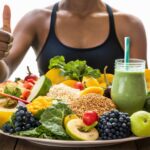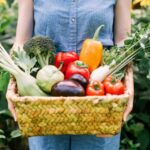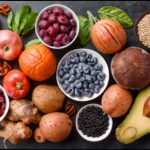Embarking on a journey towards a plant-based diet is a commendable step for both personal health and environmental sustainability. It’s more than abstaining from meat and dairy; it’s also about making conscious decisions about what you consume, including the seemingly “harmless” oils that sneak into our meals. Omitting oil from your cooking process might seem daunting at first, but with the right guidance, it can open up a new realm of flavors and health benefits.
The Truth About Cooking Oils
Many people are startled to learn that, gram for gram, cooking oils can have as many calories as beef fat. A mere tablespoon of oil packs around 14 grams of fat and 120 calories. Even coconut oil, often heralded as a healthier alternative, contains 90% saturated fats. It’s vital to recognize that not all fats are enemies; it’s the type, quantity, and consumption method that matters.
Why Eliminate Oil?
Within just an hour of consuming oil, your arteries constrict, reducing their dilation capacity. Regular consumption can lead to longer-term health issues, including heart diseases and cholesterol problems. So, while transitioning to a plant-based diet, why not take it a step further and cut out something that could be detrimental to your health in the long run?
Understanding Healthy Fats
Completely excluding fats from your diet isn’t the goal here. Our bodies require dietary fats for energy, cell growth, and nutrient absorption. The good news? Plants have us covered. Kale, quinoa, beans, and broccoli are just a few examples of plant-based foods rich in healthy fats, particularly Omega fatty acids, which are crucial for optimal body functioning.
Embarking on Oil-Free Cooking
Investing in the Right Cookware
A successful oil-free cooking experience starts with the right tools. Quality non-stick cookware might seem like a hefty investment initially, but with proper care, they can be a one-time purchase that supports your health for years. Heavy-bottomed stainless steel pans, ceramic titanium pans, enamel-coated cast iron pans, and silicone ovenware are all excellent choices. Remember, maintaining these requires using rubber or wooden utensils to prevent scratches and damage.
Revolutionizing Your Cooking Methods
Oil-free cooking doesn’t mean taste-free. You can sauté and stir-fry using water or vegetable broth instead of oil. Just keep the ingredients moving to prevent sticking and burning. Roasting vegetables in the oven is another fantastic oil-free method. A light spray of vegetable broth or a dash of your favorite herbs and spices can add a burst of flavor.
Flavors Beyond Oil
Who said oil-free food is bland? From rich vegetable broths to a myriad of spices and herbs, there are numerous ways to add zest to your dishes. Experimenting is key here. Try out different herbs, spices, sauces, and natural flavor enhancers like lemon juice and vinegar.
Steaming: The Healthiest Method
Steaming is another method that preserves the natural taste and nutrients of vegetables without needing oil. It’s not just for vegetables, though; you can steam a variety of foods, retaining more of their natural goodness and taste.
Recipes to Get You Started
It’s always easier to start with a few tried-and-tested recipes. From oil-free stir-fries and salads to hearty stews and desserts, there are countless recipes available that use alternative cooking methods and flavorings instead of oil. Start simple, and gradually explore as you become more comfortable with the new cooking style.
Adopting a plant-based diet free from cooking oil is not just a dietary change; it’s a lifestyle transformation towards better health and a more sustainable world. The journey requires dedication and adjustments, especially in cooking methods and flavoring techniques. But with an array of suitable cookware and a spirit of culinary adventure, you’ll soon discover a new world of tantalizing tastes and wholesome nutrition.
Should You Have Sugars In Your Plant-Based Meal Plan?
FAQs
Can I get enough protein from a plant-based, oil-free diet?
Absolutely, plenty of plant-based foods are rich in protein, including lentils, chickpeas, tofu, and quinoa.
How do I bake without using oil?
Applesauce, mashed bananas, and yogurt are great substitutes for oil in baking.
Is it expensive to follow a plant-based, oil-free diet?
Not necessarily. Whole foods like grains, legumes, and vegetables are often less expensive than processed foods and meat.
Won’t food stick without oil?
With the right non-stick cookware and proper cooking techniques, food won’t stick even without oil.
Can I eat out on a plant-based, oil-free diet?
Yes, many restaurants now offer plant-based and oil-free options. However, it’s important to inquire about the cooking methods used.







